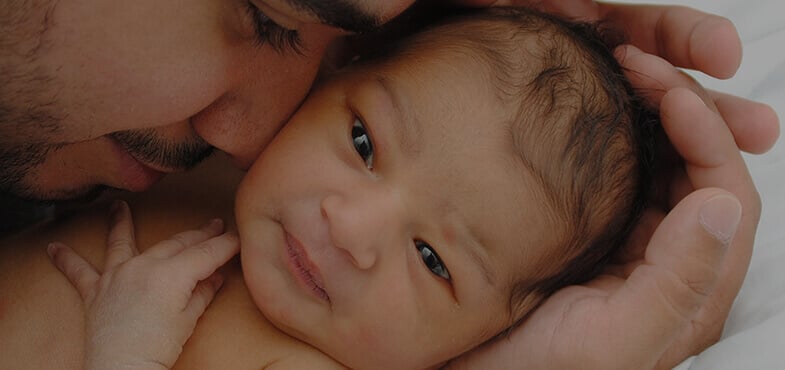Baby Eczema & Dry Skin

Eczema is a common skin condition that affects up to 1 in 5 babies. In this article, we talk about the common causes and symptoms of baby eczema and professional advice to prevent and deal with eczema in infants the right way.
What is Baby Eczema?
Eczema in babies is a chronic inflammatory condition that affects up to 20% of all newborn babies. Eczema often occurs in babies who have a family history of eczema, asthma or allergic rhinitis. Ectopic eczema usually comes in the form of periods of acute symptoms followed by periods of little or no symptoms.
Eczema often occurs in children in the form of an itchy rash, redness and irritation in the skin of the face and scalp. In some cases, baby eczema may become acute when eating certain foods (such as bovine, egg, wheat or orange).
Causes of Eczema in Children and Infants
Some of the most common triggers and causes of baby eczema include:
Genetic factors
Food allergies - (such as milk, fruits, etc.)
Inhalant allergies - (such as dust, pollen, etc)
Heat and sweating
Excessive sun exposure
Skin products that contain alcohol
Saliva and drool
Low humidity
Types of eczema in children and infants
Contact Dermatitis: Red Itchy Rash
This type of eczema occurs as a result of contact with irritants. Symptoms of this type of irritation will appear on the skin, such as itching, redness of the skin and burning sensation. This infection usually disappears when the irritant is removed.
Atopic Dermatitis: Persistent Red Spots
This is the most common form of eczema in children and adults. Dermatologists suspect that this type of eczema is caused by an overactive immune system. You will notice redness in the skin accompanied by dryness and itching.
Seborrheic Dermatitis: Dandruff
It is not usually thought to be eczema, but dandruff occurs in this type of infant eczema. Alongside your head, you may also find plaques on your eyebrows, nose, chest, or back.
Treatment of eczema in babies and infants
Baby eczema often occurs in the form of a rash on the body and is usually associated with severe itching. If the condition persists or is severe, you should consult your paediatrician to see if the condition is clinical eczema or dry skin, and to know how best to treat and control eczema for your baby.
Treating baby eczema and severely dry skin:
Avoid things that are thought to cause itching, such as dust, grass, grass, wool clothing, some soap, antiseptics, fabric softeners, and perfumes. You can keep a note to determine the most likely cause.
Bath your baby several times for short periods, no more than 5 to 10 minutes, in warm water, not hot.
Use a mild cleanser or shampoo designed specifically for babies with sensitive skin. Be more aware of areas that are often exposed to the external environment.
Dry your baby's skin after bathing with a soft towel and use a moisturizer immediately. But do not rub the skin.
Moisten your baby's skin a lot throughout the day, especially after bathing.
Use an emollient cream on your baby's skin from top to bottom.
Although baby eczema may be a troublesome medical problem, especially during times of stress, following these simple and easy to follow tips can help your baby feel more comfortable while stimulating his or her sense of smell and touch. Remember that pleasant smells such as lotion or baby oil, when accompanied by your own delicate interactions with your child, can create lasting memories that are never forgotten and help shape the brain of a child who is still growing.
Related: Newborn Skin Conditions
References:

More on Eczema
Visit BabyCenter® to learn even more about how to recognize, treat and prevent eczema.
Moms around the world trust JOHNSON’S® to care for their babies
We are committed to working with moms, healthcare experts, and scientists to ensure our products continue achieving the highest standards in safety, quality, and care.